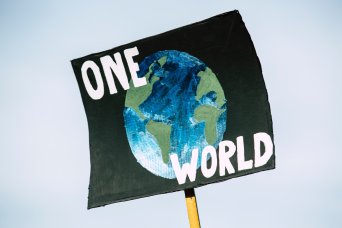- About
- Topics
- Picks
- Audio
- Story
- In-Depth
- Opinion
- News
- Donate
- Signup for our newsletterOur Editors' Best Picks.Send
Read, Debate: Engage.
| topic: | Climate action |
|---|---|
| located: | Afghanistan, Bangladesh, India, China, Pakistan, USA |
| editor: | Shadi Khan Saif |
As another COP ends in disappointment, we need to remind ourselves that the environmental crisis faced by all of humanity is a long battle requiring urgency and inclusivity. Nevertheless, a lack of haste to act was evident at the climate summit, leading many to feel that this annual event is just another corporate gathering.
At a time when so many citizens of the world - particularly in the most poor countries, such as Afghanistan, Bangladesh, Pakistan, and a number of African countries - are losing lives and property every day due to the inaction of the major polluters, like China, US, India and Russia, this injustice must end.
The COP summits are not the only ways towards climate justice. We, the citizens of the world, need to keep pushing our own governments at every level to move towards green policies and to not get cornered by industry and business lobbyists. With pressure from civil society, we can counter their influences, and convince our governments to prioritise climate justice over greedy profits.
Technically, it is difficult to judge the success and failures of the COP meetings, especially when there are no major breakthroughs or commitments. That, however, should not be the dominant point of the argument as long as humans in the worst-affected countries continue to suffer immensely due to inaction.
The COP mechanism on its own is a vital platform, with a huge potential to deliver. However, these summits, with so many international players, often give rise to competition, often discouraging cooperation or commitments. Therefore, the steering of the COP meetings becomes even more important to bring together diverse and often conflicting interests on the same page and deliver climate justice to the world.
Meanwhile, until the next COP when major powers and industry leaders meet, we must keep pushing and striving for environmentally friendly policies and not let this pressing issue become a once-in-a-year concern.

